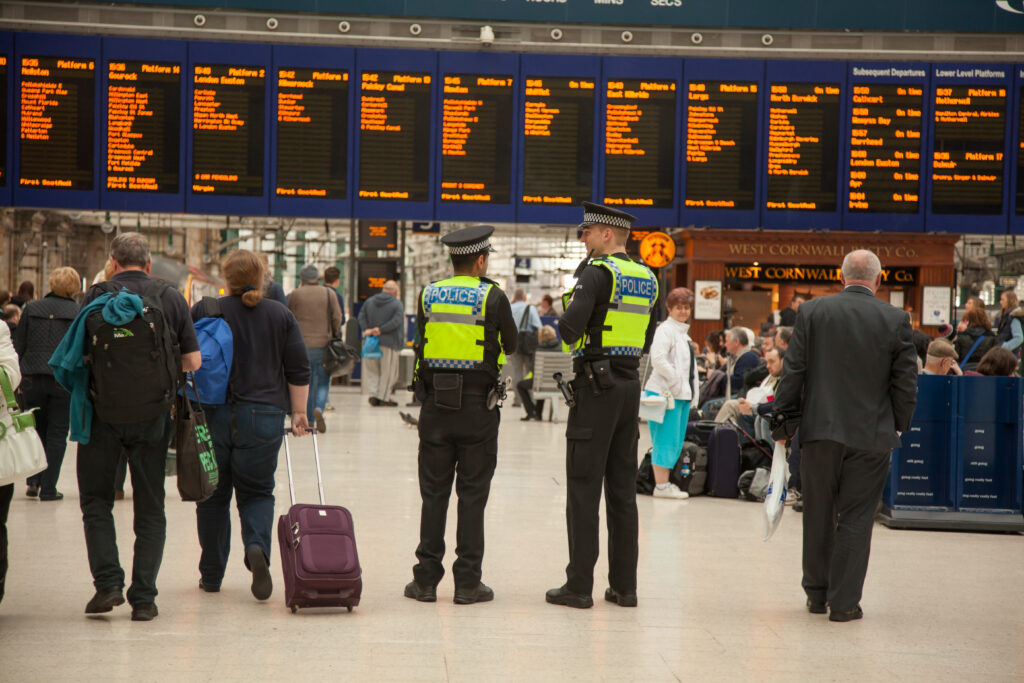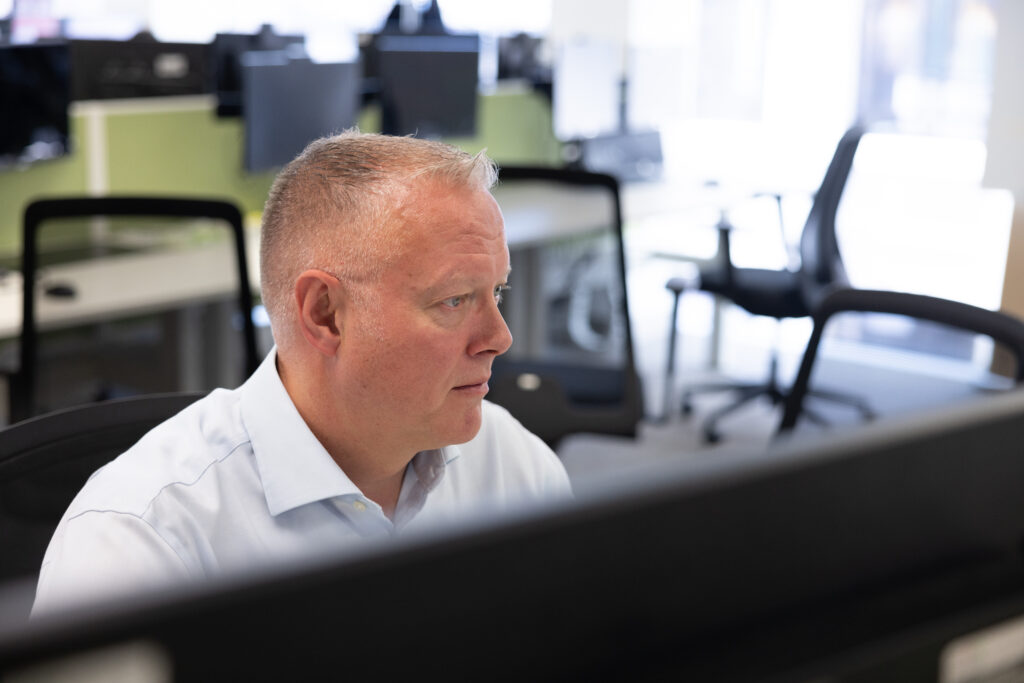RailStaff speaks to Samantha Facey, Health, Safety and Security director at Govia Thameslink Railway, about its
renewed partnership with the British Transport Police.
The safety of staff and passengers is of paramount importance to all train operating companies (TOCs). In recent years, the safety environment has started to change, partly a result of the Covid pandemic and the UK’s current economic situation. Operators are rightly bolstering their response to incidences of crime on the network and looking to build partnerships that make tackling this challenge more achievable.
Govia Thameslink Railway (GTR) and the British Transport Police (BTP) recently renewed a commitment they made to safety on the railway back in 2022. The two organisations signed a new collaboration agreement, committing them both to strengthening their partnerships and working together towards shared objectives. The declaration was signed by Patrick Verwer, GTR’s CEO, and Christopher Casey, chief superintendent for the BTP.
In the past year, the two organisations have worked together closely to crack down on crime across the GTR network. Joined-up working has included more patrols, increased presence at problem areas and dedicated teams tackling reports of antisocial behaviour and County Lines – both of which are increasing problems for all train operators.
The agreement will help to continue the great work being delivered by GTR and BTP with a focus on: the importance of quality reporting; deterring unwanted sexual behaviour on GTR trains and stations; identifying and protecting potentially vulnerable people and groups; preventing and prosecuting any staff assault; and improving staff and passenger confidence through increased engagement.
Changing behaviours
Samantha Facey was there when the agreement was signed. In addition to signing the agreement, the rail operator also announced Mike Boyce in the newly-created role of head of security and policing.
“We’ve worked closely with the BTP for many years, but the formal collaboration agreement came as a result of Covid, when we started to see changes in passenger behaviour emerge. We’ve found that passengers are becoming frustrated much more easily than they used to and are less likely to take direction when they become upset. This is partly due to the increased use of smartphones and apps. Sometimes passengers have information about rail services before we can get it, and when their expectations are not met, there can be problems.
“In the summer of 2021, we were thinking about how we could collaborate with BTP across some key areas and improve our relationship to tackle these emerging risks. We don’t have all the answers, but we’re stronger when we’re working together and pooling our resources. And we’ve had some great successes to show for it.”
A brave new world
It’s understandable that the pandemic has caused people to act differently. Lockdown saw a marked increase in mental health issues, and we’re still all dealing with the impact of stepping back out into the wider world. Anxieties remain about personal health as well as social interactions, and this can manifest as minor inconveniences being built up into major issues. These behaviours are impacting the operation of the network.

“Recent years have seen increased incidences of trespass,” says Samantha. “Covid has its part to play, but so does the current socio-economic climate. For instance, we’ve seen in a rise in trespass for the purposes of theft. But we’re also seeing more antisocial behaviour – ‘tomfoolery’ on the track, for want of a better phrase – as well as an increasing number of passengers stepping onto the tracks to retrieve lost or dropped property – usually mobile phones.”
“This is a major problem, but not just in terms of the obvious risk to life of those who are trespassing. The delays caused by trespass result in frustrated passengers who, today, are much more likely to vent their frustration on staff, or to take direct action. Since Covid, we’ve found that people are less willing to wait for instruction and this can result in situations where passengers begin to egress the train while it is not safe to do so. All of these problems can result from a single trespass incident, and responding to it uses up valuable resources.”
Living standards
As Samantha has already alluded to, it’s not just Covid that has rocked the country in recent years. The cost-of-living crisis is having a huge impact on the daily lives of many people. As in previous times of economic hardship, cases of homelessness and vulnerable living are rising.
“There has been an increase in vulnerable persons and suicide prevention work across the network, and the demographics of the people we’re working with are changing, says Samantha. “Middle-aged men remain the largest demographic among vulnerable people, but we’re increasingly working with younger people too. Speaking personally, I also think that’s got a lot to do with social media and feelings of social isolation, and County Lines trafficking also plays a part.
“As we improve our data, we’re seeing that vulnerable people who arrive at our stations are not necessarily looking to harm themselves, but may be dealing with mental health challenges, or may be lonely and seeking social contact. We’re also seeing people who have been moved on from providers of support, who are increasingly stretched at the moment.”
Real results
GTR and BTP have worked together closely since 2022, and they are now reaping the benefits. Anti-social behaviour and staff assault, remain sad realities of working on the railway, but Samantha says the statistics are heading in the right direction overall.
“Our biggest challenge at the moment remains anti-social behaviour, which is difficult to combat. Sometimes the perpetrators are themselves vulnerable. Often, they’re also minors, who are no less threatening to our staff and customers, particularly if they’re in large groups.
“It’s difficult to tackle anti-social behaviour in these situations, because prosecution may have a real impact on their future prospects, and they could already be in a vulnerable position. However, we work hard to support staff who have been the victims of violent and threatening behaviour and help them through the process of reporting and prosecuting crime.”
“Thankfully, our profile of actual assaults has decreased year on year and we’re seeing good progress in this area. Physical assaults have remained stubbornly consistent, but the volume of verbal and threatening behaviour is coming down. We rely on staff surveys and reporting of incidents to gather this data, and it shows that things are moving in the right direction. Surveys are a good barometer of how people feel and we’re making a real push to encourage staff to report crime. This is important in itself because it makes people feel empowered to report incidents and it lets them know that we’re listening and taking it seriously. Having that crucial data also helps us to make sure we have the right resources in the right locations, based on what our people are telling us.”

Driving change
Demonstrating its commitment to all aspects of safety on the railway, GTR recently announced Mike Boyce as head of Security & Policing. This new role sees him leading on all matters of security, crime, disorder, and antisocial behaviour, helping to strengthen relationships with the BTP and other key stakeholders.
Mike has 20 years of experience at the BTP, and in his long career was promoted to the rank of inspector. He also worked closely with Eurostar and Network Rail to achieve a reduction in external and on-board delays whilst building stakeholder relationships. He is an invaluable asset in GTR’s efforts to reduce crime and promote safety on the railway.
“Mike’s an incredible leader within our organisation and he’s helping to strengthen our relationships with BTP and key stakeholders.
“People may just say that our partnership with BTP is just a good photo opportunity, but it means a lot to our organisation and it’s gaining positive results. Mike’s appointment shows that we’re committed to working as closely as we can with each other at BTP.
“We are living our commitment to safety and driving it forward.”
Image credit: GTR / istockphoto.com

